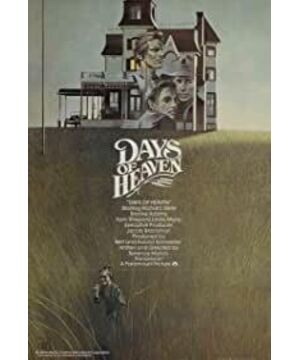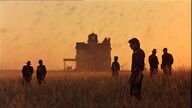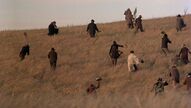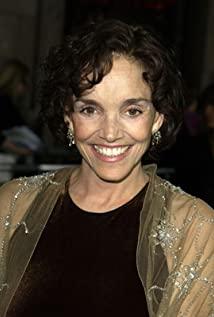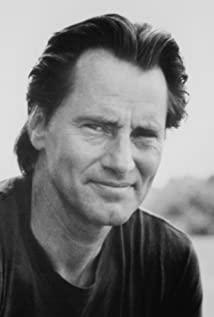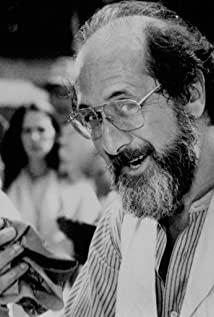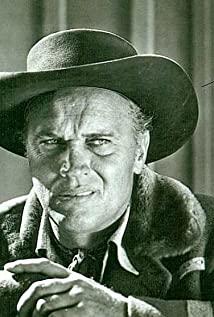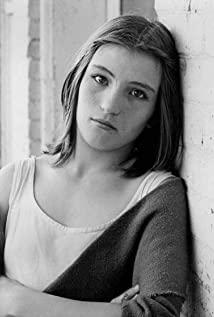1. The dignity and suffering of the poor-an inescapable cycle
Happiness is actually very simple. Every day, the afterglow of the setting sun hangs over Bill and Abby; in the evening when there is no one, they can play in the pond like a normal couple; they can also chase me with the children in the tall wheat bushes. When they have nothing but each other, although they often look at the unattainable and isolated villa in the corner, they can feel the magnificence that nature bestows on them and the warmth they draw from each other. That villa, just like its owner, is high above but cold. And they, like birds flying on the endless wilderness, are magnanimous and free. The world of the poor, although materially poor, but full of spirit. People use singing and dancing to release their talents and emotions in one of the few free time. At certain moments, they are more enviable than the lonely and weak rich.
However, despite the short happy time, it is far from enough for Bill, who seeks male self-esteem. He couldn't stand what he was being called around, couldn't stand his own woman being bullied and looked at, and couldn't continue to live humblely like an ant. In American society in 1978, the life of the poor was unbearable, whether in the city or in the countryside. People at the bottom have never had human rights at all. Although Bill's status is low, but his heart is arrogant. He was unwilling to live like this, fantasizing that he would one day be ahead and demanding equal treatment. Such a contradiction is destined to be incompatible with this world where interests are paramount. Because of dignity, only wealth comes with it. They became the pitiful victims of this world, struggling to break through the thorns of this class.
It's just that all efforts seem to be stupid in vain in the movie. The whole story is an endless loop of poor people. At the beginning of the story, Bill accidentally killed his boss by the iron-making furnace and fled Chicago. At the end, he also killed the farmer after the fire. Every time is not what he intended, but life is like this time and again forcing him to commit unforgivable crimes, and eventually there is nowhere to escape. The fire at the end seems to come from God's punishment, to wash away all this greed and sin. Linda said that kind people can escape the fire, but God can't hear the call of people who do bad things. But where did these sins come from? They grow up in poverty and despair, and they take root in the squeezed and ravaged painful soul. Suffering people work desperately, but never look forward to it.
2. Human greed and selfishness-a cruel society where material desire is supreme
Year after year, the wheat is ripe again, and the poor and hired workers leave and come again. But this time, in addition to the unexplained ambiguity with Abby with Bill coming back again, there was also the terrible locust plague sent by nature. The male self-esteem and wealth of the farmer have been repeatedly challenged and threatened, and they have reached the point of being intolerable. He treats Bill as a lousy creature that squeezes his property away, trying to destroy Bill like a prey. And Bill finally killed the farmer and took his wealth and women as his own. Everything seemed to be back on the track of the original plan, but everything was different again. Destiny even takes away the things they originally possessed as a price, such as freedom, such as love, such as life. When they brought countless money and thought they could start their new ideal life, God made a cruel joke with them.
Yes, they are stupid, greedy, and selfish, but how can the suffering people who can’t eat enough be as noble as saints? Poor people must be hateful, and their every move also makes people feel distressed and helpless. I often think of the opening chapter of "The Great Gatsby": "When I was young and had no experience, my father taught me a word, and I still remember it. "Whenever you want to criticize anyone, 'He said to me,'Just remember that not all people in this world have the advantages that you have.'" They don't know what to do, and no one will help them. They I can only follow my heart. They are not educated and will not have a clear distinction between good and evil; they have not experienced temptation, as long as they get a little bit of benefit, they will be stuck in it. Their conscience makes themselves unable to bear to hurt others, but their ever-increasing desire drives them to keep grabbing and not willing to give up. In the face of self-made moral dilemmas, they blame themselves, punish themselves, and exile themselves, trying to make up for their sins in vain. This is the real person! All they want is to taste the sweetness of life, to touch the dream life far in the sky, and that kind of life is a place they can't reach for a lifetime through legal channels.
The film also seems to try to use the emotional and moral dilemma between the three people to insinuate the opposition between nature and humans in the broader capitalist world. The wealthy farmers squeeze the people at the bottom and rely on fertile land to grab a huge amount of material wealth. This is not the same as the behavior of the poor in the story by deceiving and attaching themselves to the rich, changing their class status and quality of life, and thus expanding their desires. Converge and form a corresponding relationship. In fact, in essence, neither land nor money belongs to us, but we take it for granted, enjoy it, and ultimately cannot afford to lose it. For example, the locust plague was originally a random natural phenomenon, but it was regarded as a terrible scourge because it undermined the "interests" of mankind. But I think that from a certain point of view, it is not necessary to be too harsh, because human nature is greedy and selfish. This is the same as natural phenomena, which is also innate. It is only acquired temporarily by self and society through education and belief. Constrained. Whether it is poor or rich, in the end, they cannot escape from their own nature. What we need to do is not to criticize this unchangeable nature from the source, but to work hard to change the rules of this society, so that people can have more equal and diverse channels to satisfy their own desires, or make people realize that they are in the material world. The pursuit of higher spiritual value is meaningful outside.
3. The growth and loss of children-the eternal farewell ceremony
As the witness and teller of the whole story, the girl Linda looks at the world with innocent, strange and vigilant eyes. Her mouth is always slightly tilted, as if showing her stubbornness. Her innocence and ignorance are in sharp contrast with the calculation, betrayal, and pain of adults. There are not so many complicated people and things in Linda's world. Only her friends and family make up her ordinary life. She made friends on the farm. She is usually silent and chattering with her friends. It was a girl older than her, who would teach her something about the adult world, such as love that she still knew nothing about. It's just that when the season changes, she will say goodbye to her friends whose employment period is over. For home, what she wants is very simple, but a stable life and a dependable family member. Sometimes, it doesn't even matter if those people are her blood relatives, as long as they can bring her a sense of security. For a girl, the lives of poverty and wealth seem to be very happy. As long as there is someone around her and someone talks, she will show a beautiful smile. As long as the world keeps on like this, don’t change, it’s fine. Her eyes told me this.
Linda occasionally reveals the innocence of some children, but more often has the maturity and calmness that surpasses children. She observes everything silently, learning the behaviors and habits of adults. She would smoke one by one like her brother to fill her hungry body; she would share cigarettes with close people to gain a sense of intimacy. Sometimes she would play playfully like a child; she would pounce on her elder brother for care; she would tap dance generously in front of a group of people; the whole world was bright when she laughed. Regarding what the adults did, she saw that although she didn't quite understand it, her long-term habit prevented her from asking too much. She would only silently follow behind them, sharing a sense of guilt. Her calm and non-emotional narration reveals the pessimism in her bones. Perhaps the burden of previous life taught her to bear everything silently. Even at the moment when her brother died, she was just panicked like a deer. She didn't howl, only cried quietly afterwards. The girl never said anything about losing, as if she had been used to it for a long time. However, her expression will still reveal a touch of loss. She was powerlessly trying to catch something in this world where nothing would stay for her. It was like she kept chasing the cars and people away from her, and in the end she could only watch the beauty of the past disappear between the boundless world.
The girl finally had a prosperous life, escaped from all the original suffering, and got the material life of Bill and Abby's sacrifice. But she is still the girl who longs to rely on and is afraid of loneliness. She still couldn't escape from the abyss of silence, unable to escape the fate that was left behind. In the ending, the women left behind chose to wander and self-exile. Maybe they can't bear the restraint by nature; or they subconsciously feel that they don't deserve to have a stable life; maybe they are looking for something that they haven't even figured out. In the end, the girl escaped and went away along a long track. Where will the track take her? Maybe, she might meet a man like Abby, experience a love, and end up like her, or she might not. The only thing that is certain is that life will still not have a trace of pity for her, and she will continue her life of constant loss and constant farewell...
View more about Days of Heaven reviews


